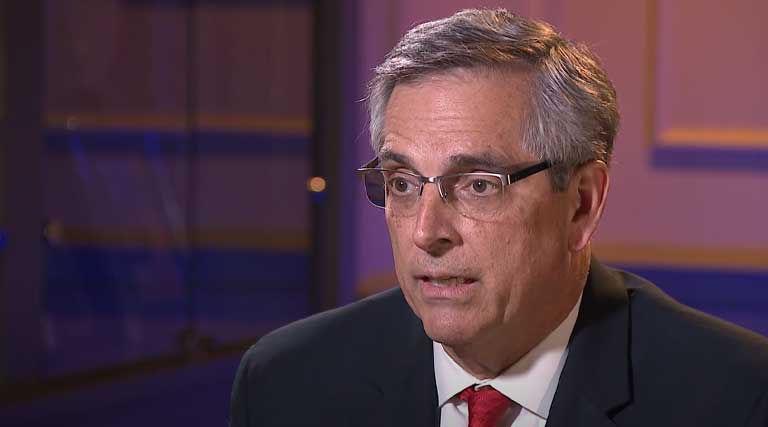Raffensperger Seeks To Eliminate Signature Matching And No-Excuse Absentee Voting Citing Extreme Cost Of Processing Ballots.
Photo – Georgia Secretary of State Brad Raffensperger
The Center Square [By Nyamekye Daniel]-
Georgia Secretary of State Brad Raffensperger called on lawmakers Wednesday to propose legislation to revamp the state’s absentee ballot voting process.
During an election investigation hearing Wednesday, Raffensperger asked the House Governmental Affairs Committee to eliminate signature matching and no-excuse absentee voting.
Georgia’s no-excuse absentee voting law allows voters to request ballots by mail up to 180 days before an election.
“The no-excuse system voted into law in 2005, long before most of you, if not all of you, long before I was in the General Assembly, it makes no sense when we have three weeks of in-person early voting available,” Raffensperger said. “It opens the door to potential illegal voting, especially in light of the federal rules that deny us the ability to keep voter lists, registration files clean.”
Raffensperger said signature matching and no-excuse absentee voting adds extra strain to local county election precincts that manage elections. Local election officials backed Raffensperger’s proposal soon after the meeting Wednesday. Officials said the processes overburdened election workers during the 2020 election season as absentee ballot requests surged because of the COVID-19 pandemic.
“In light of the past few months and the overwhelming amount of paper absentee ballots that have been requested, processed and counted, I would support legislation that would require all applicants to provide a reason to receive an absentee ballot by mail,” Deidre Holden, Paulding County elections and registration supervisor, said in a statement. “It would also help with the expense on a county budget due to the extreme cost incurred in the processing of a ballot from beginning to end.”
According to the secretary of state’s office, no-excuse absentee ballot voting was used by between 5% and 7% of Georgia voters – no more than 300,000 ballots – before the pandemic. Records show in the 2018 general election, 284,393 Georgians voted with absentee ballots. That number skyrocketed to 1.3 million in the 2020 general election.
Raffensperger said the state should replace its signature matching process for the absentee ballots.
President Donald Trump’s campaign and supporters and some GOP lawmakers have criticized signature matching. Trump has made numerous demands on Twitter for a review of the state’s signature matches, and at least one lawsuit was filed to block the certification of the results because of the process.
Critics say the process is susceptible to fraud. Raffensperger has announced the launch of a statewide review and audit of the signature matches. The secretary of state’s office has yet to confirm any incidents of widespread fraud associated with absentee voting. Raffensperger said Wednesday, however, that signature matching was “subjective.”
When an absentee ballot request form is received via mail by county election offices, workers compare the signature on the request form to the voter’s signature on file. The state’s online portal for absentee ballot requests requires voters to use their driver’s license number to confirm their identity, officials said. The ballot is returned in a discreet envelope that voters sign, agreeing to an oath.
Once the ballot is received, at least three election workers must agree the voter’s signature on the envelope matches the signature on file. Officials said workers received Georgia Bureau of Investigation training on the process.
Raffensperger also asked voters Wednesday to give him the power to terminate incompetent local county election officials.
“For years, this office is accused of problems in elections where we have zero authority and no control,” Raffensperger said. “Only through a direct ability to hold people accountable can we improve elections accountability and transparency, as thus improve voter confidence.”





